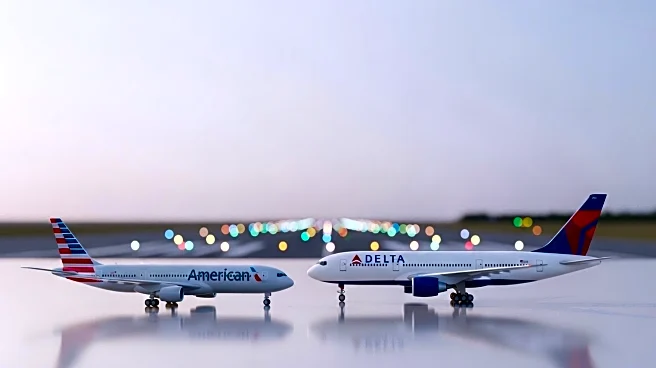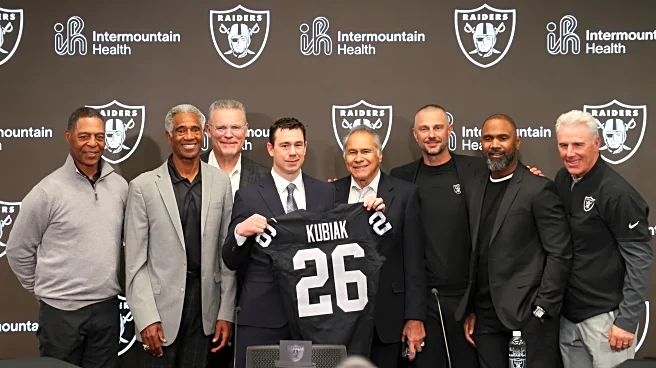What's Happening?
American Airlines and Delta Air Lines have grounded several pilots following their online celebrations of the assassination of Charlie Kirk. The pilots were removed from service after making controversial social media posts that were flagged by the public and reported to the airlines. Secretary of Transportation Sean Duffy confirmed the grounding of American Airlines pilots, describing their behavior as unacceptable. Delta Air Lines has also suspended employees pending an investigation into violations of the company's social media policy. The incident has sparked a broader discussion about the appropriateness of such comments from individuals responsible for passenger safety.
Why It's Important?
This development highlights the critical role of social media policies in maintaining professional conduct among airline employees, especially those in safety-sensitive positions like pilots. The grounding of these pilots underscores the airlines' commitment to ensuring passenger safety and upholding their reputations. It also raises questions about the impact of personal beliefs and public statements on professional responsibilities. The incident could lead to stricter enforcement of social media policies across the industry, affecting how airline employees engage online. Additionally, it reflects ongoing tensions in the U.S. regarding free speech and the consequences of controversial statements.
What's Next?
The airlines are expected to conduct thorough investigations into the pilots' conduct and determine appropriate disciplinary actions. This situation may prompt other airlines to review and possibly tighten their social media policies to prevent similar incidents. The outcome of these investigations could influence future industry standards and employee training programs. Stakeholders, including pilot unions and civil rights groups, may weigh in on the balance between free speech and professional conduct, potentially leading to broader discussions on policy reforms.
Beyond the Headlines
The incident raises ethical questions about the role of personal beliefs in professional settings and the potential for bias in critical safety roles. It also highlights the challenges companies face in managing employee conduct in the digital age, where personal and professional boundaries are increasingly blurred. The situation may lead to a reevaluation of how companies address controversial public statements by employees and the implications for workplace culture and diversity.











